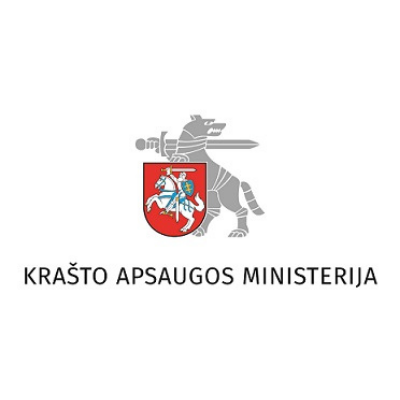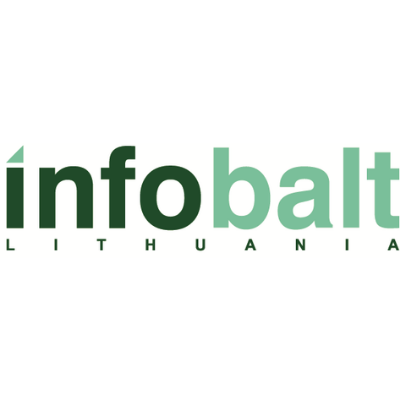STUDY PROGRAMME PLAN
|
Course units |
ECTS credits |
|
1st YEAR |
60 |
|
1 SEMESTER |
30 |
|
Compulsory course units |
30 |
|
Economic Basics* |
3 |
|
Management* |
3 |
|
Decisions of E-governance and E-Democracy |
6 |
|
Security Economics |
6 |
|
Fundamental Principles and Risk Management of Cybersecurity |
6 |
|
Organisational Cyber Security Culture |
6 |
|
Research Methodology |
6 |
|
2 SEMESTER |
30 |
|
Compulsory course units |
30 |
|
Legal Environment of Cyber Security |
6 |
|
Privacy and Data Protection |
6 |
|
Intellectual Property |
6 |
|
Modeling of Electronic Information Security |
6 |
|
Master Thesis Project |
6 |
|
2nd YEAR |
30 |
|
3 SEMESTER |
30 |
|
Compulsory course units |
30 |
|
Management of IT Projects |
6 |
|
Master Thesis |
24 |
* – Course units are compulsory for students who have not studied it during their bachelor’s studies.
General competences and learning outcomes
- Personal and Social abilities
- Ability to organize evaluation of research and work of a modern cyber security, analyze their adaptation to meet the needs of the State and society, and to the development of economic and social values, to create an interaction of modern scientific and efficient managerial environments, to plan their strategies, the use the holistic approach in making managerial decisions;
- Ability to understand how cyber security management creates safe, competitive environment for the public and business services, and how is creating added value for business and in all levels of knowledge-based economy.
Subject specific competences and learning outcomes
- Knowledge and its application
- Ability to organize and manage human resources, technological platforms in cyber security field, and make the decisions in changing environments, to develop and manage cyber security development projects, to the legal environment;
- Ability to apply in a socially responsible manner the managerial decisions, analytical tools in the field of security of cyber security and to organize research in this direction, creatively use modern methods of decision-making with regard to the legal environment;
- Ability to evaluate the strategic trends of cyber security, to align technological trends with global, public, social, economic needs, through the interdisciplinary knowledge and scientific research methodologies;
- Ability to use a holistic approach in dealing with a wide variety of cyber security threats.
- Research skills
- Ability to deal with the realities of cyber security, taking into account the increasing dynamics, the potential threats, strategic opportunities arising from tendencies of global electronic business, electronic public services, the environment of e-business and the global trends;
- Ability to work in the environment of electronic public services and e-business, in the context of heterogeneous changes, using the holistic management paradigms, methodologies and the latest social and information technologies in the field of cyber security.
- Special abilities
- Mastering the cyber security model making, innovation management, cost-effectiveness, the methods of development and implementation of projects and their dissemination, the combination of forms in their adaptation to the micro and macro levels, as well as the ability to strategically plan the security of electronic information (cyber security) processes in the global safe cyber space and in knowledge-based economy;
- Ability to organize and manage human resources, technological platforms in cyber security field, and make the decisions in changing complex environments, to develop and manage cyber security development projects;
- Ability to scientifically analyze creative solutions in the cyber security field, and evaluate development opportunities, to base and create innovative ideas and creative solutions for their implementation in electronic and information security (cyber security) field, to implement the security of electronic information (cyber security) innovative projects, to integrate new knowledge in new and unknown environments and in global multicultural contexts.
Full-Time Studies (in English)
Classes are held on weekdays from 6:00 PM to 9:00 PM, with one session per week held online in the “Moodle” platform.
International students who are in the process of obtaining a temporary residence permit in Lithuania and cannot travel to Lithuania will be able to study remotely during the first semester.
- Choose a study programme
- Fill in the application form at apply.mruni.eu
- Pay the non-refundable application fee (for non-EU citizens – 100 euros, for EU-citizens, MRU alumni, and Ukrainians – 50 euros)
- Receive your application evaluation results
- Confirm your acceptance by paying the first-year tuition fee and 50 euros registration fee (non-refundable)
- Sign the study contract
- Start Temporary Residence Permit application procedure
- Register to studies
Required documents:
- Bachelor degree or equivalent first university degree diploma (3-year study duration minimum)
- Academic transcripts of each study year
- Document proving English language level
- Motivational letter (please note that the authenticity of the motivation letter will be verified using specialized software, so it should be written without AI assistance)
- Passport copy
Additional educational documents might be required depending on the country of residence.
Provided documents must be in color, have no cut corners (high quality scan).
Notes:
- The minimum 60% of maximum possible GPA is required in order to be considered for admission.
- By submitting the documents applicant agrees for one’s information to be shared with other institutions that the University might refer to while processing the academic verification.
- Applicants might be asked to participate in additional knowledge evaluation.
Required level – B2
Assessments of English language proficiency certificates equivalent to level B2:
- TOEFL IBT 72-94
- IELTS 5.5-6.5
- PTE score 59-75
- DUOLINGO 100-125
If you do not have a certificate proving your English language proficiency level, you can take the University Online English language level test. You will be able to choose this option while filling in the application. The test is free of charge.
Certificate is not required if your native language is English or if your previous studies were conducted fully in English language.
- If the original educational documents/transcripts are in English, Lithuanian or Russian with an apostille (if required) on the scanned original, no translation needed.
- If original educational documents/transcripts are not in English, Lithuanian or Russian languages, then they have to be supplemented with an official translation.
- The official translation has to be confirmed with the sworn translator’s signature or official notarization.
- Accepted students shall present their original educational documents/transcripts to the International Office upon arrival to begin their studies.
Country Specific Requirements can be found here.
Recognition of Foreign Qualifications
- The evaluation and recognition of prior qualifications is a part of Mykolas Romeris University (MRU) admissions process.
- By submitting the online application you confirm that the documents are legitimate and that MRU can verify the authenticity of the documents by contacting its issuing authority and national ENIC/NARIC centre.
- Documents uploaded must be in good condition and in full colour. Documents issued in languages other than English, Russian, or Lithuanian must be accompanied with an official translation into English or Lithuanian.
- Before you apply make sure that you have a complete documentation package and that your qualifications are giving access to higher education according to the study programme level you are applying for at the MRU.
Recognition Criteria
- The purpose of an assessment is to compare a foreign qualification with a similar level qualification awarded in Lithuania according to quality, profile, content, workloads and learning outcomes.
- Your qualification will be assessed according to specific requirements for the programme you are applying for and whether your academic results are sufficient for studies at the MRU.
Right to Appeal
Recognition decisions can be appealed against to the Academic Recognition of Foreign Qualifications Concerning Higher Education Appeal Committee under the Lithuanian Ministry of Education and Science.
All appeals with supporting documents must be submitted to:
Centre for Quality Assessment in Higher Education
Ph.: +37052104778
Email: recognition@skvc.lt
Address: SKVC, A. Goštauto st. 12, LT-01108, Vilnius, Lithuania
The procedure of evaluation and recognition of academic qualifications
Application fee (non-refundable):
- for Non-EU citizens – €100
- for EU citizens, MRU Alumni, and Ukrainians – €50
Registration fee (non-refundable):
- €50
Tuition fee (EU/Non-EU citizens) per 1 academic year: €4606 per one academic year (2025-2026).
Payment information will be provided in the invoices issued in your online application form.
Student continues to pay the same tuition fee which was implied at the time of the admission.
E-mail: study@mruni.eu
Phone: +370 5 271 4700
WhatsApp: +370 6 564 6682
Office: I-122







